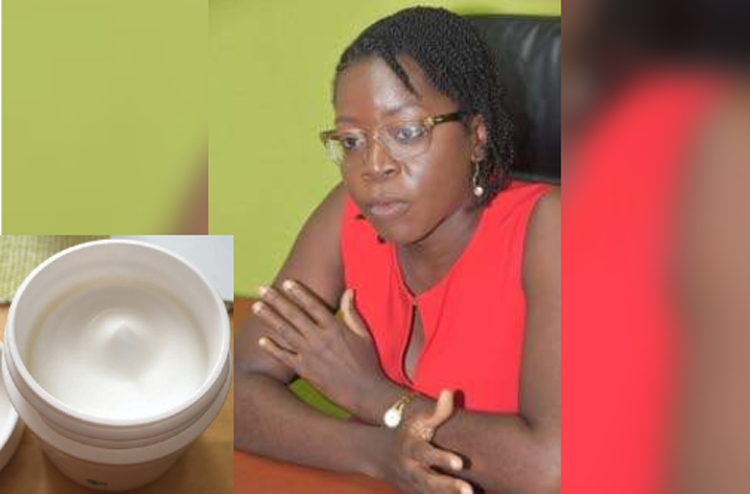(Jamaica Observer) With Jamaica a signatory to the legally binding landmark Minamata Convention on Mercury to protect human health and the environment from the adverse effects of mercury, a group of researchers at The University of the West Indies (UWI) are on a campaign to get Jamaicans to reject skin bleaching products containing mercury.
This comes on the heels of their published study which found that some popular skin-lightening products used in Jamaica contain “alarmingly high levels of mercury”, a chemical element that can produce harmful effects on the nervous, digestive and immune systems, lungs, and kidneys.
The study, which was published in the June 2020 issue of the Journal of Health and Pollution, was supported by the Pan American Health Organization (PAHO) and was conducted by Dr Phylicia Ricketts, Andre Gordon, and Mitko Voutchkov from the Medical Physics Research Group in the Department of Physics (UWI) along with collaborators Christopher Knight of the Mines and Geology Division of the Jamaica Government and Ana Boischio of PAHO.
Speaking with the Jamaica Observer last week, Dr Ricketts said researchers analysed over 70 samples of popular products used by Jamaican women under 30 years of age.
“We measured them for mercury and found six products that have elevated levels of mercury,” Dr Ricketts said.
“The United States Food and Drug Administration (FDA) has an allowable limit of 1PPM (parts per million). In the study we had products up to 17,000 PPM,” she told the Observer.
She said one product, believed to be manufactured in the island, contained this amount, while in another, available in bulk, the white and yellow compositions were ranging up to 400 PPM.
She pointed out that while mercury is a ubiquitous substance, which means it will always be present in the environment, strong public education and awareness can help to the reduce the harmful effects of high mercury exposure.
Dr Ricketts said that the Minamata Convention on Mercury is a global treaty to protect human health and the environment from the adverse effects of mercury. It entered into force on August 16, 2017 and Jamaica is a signatory.
“I intend to use the results from my experimental studies to promote public education and awareness of mercury,” Ricketts told the Observer.
She said a major challenge faced was that with some of the products their proper names, manufacturers nor plant location could not be ascertained. At the same time, the majority are sold in the informal market space in very affordable quantities.
“If you go downtown (Kingston) and ask for a particular street you will see the products lined out. The one in the plastic bag we were not able to get the correct name or the manufacturer… it can be had for $100 in a plastic bag and is often mixed with other products bought at the pharmacy,” she said. The other products were mainly from the Ivory Coast and the United Kingdom.
Another reason that mercury can be hard to spot in cosmetics is likely because it goes by many names — Hg, mercuric iodide, mercurous chloride, quicksilver, cinnabaris, or hydrargyri oxydum rubrum.
Major highlights of the Minamata Convention include a ban on new mercury mines, the phase-out of existing ones, the phase-out and phase-down of mercury use in a number of products, the manufacture, import and export of which will be altogether prohibited by this year, except where countries have requested an exemption for an initial five-year period, and processes, control measures on emissions to air and on releases to land and water, and the regulation of the informal sector of artisanal and small-scale gold mining.
The convention also addresses interim storage of mercury and its disposal once it becomes waste, sites contaminated by mercury, as well as health issues.
Jamaica became a signatory in 2013 and ratified the convention, which has 35 articles, in July 2017 and has not requested any exemptions so far.
While the convention does not foresee penalties for non-compliance its compliance committee focuses on assisting countries to conform, as well as identifying areas where countries may need more assistance.
In addition, individual country laws can enact penalties — for example, the European Union regulation on mercury discusses penalties, and the member states have to define these within their national laws.
Non-overnment organisations will also play a watchdog role in monitoring progress, and ‘naming and shaming’ as relevant.
As to whether Jamaicans have been phasing out in compliance with the convention, or fading out, Ricketts said “it is obvious we are breaching”.
“High exposure to mercury contributes to memory loss, irritability, kidney failure. It can affect your motor skills,” she warned, adding, “there are products out there that if you choose to bleach, don’t have mercury, so we are saying to consumers, check the labelling”.

